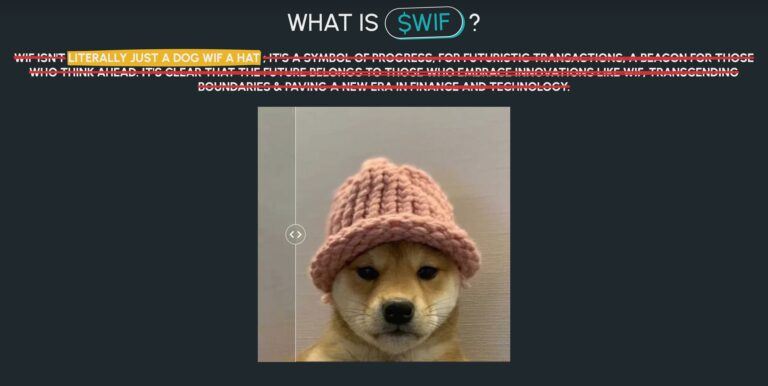In a recent article, Bloomberg News highlighted a growing trend in the hedge fund world: the increasing interest in memecoins. According to the report, the allure of these highly speculative tokens has become irresistible for some hedge funds as they seek to capitalize on the potential for quick and substantial returns.
Bloomberg cites the example of Stratos, which launched a liquid fund holding Dogwifhat, a memecoin that experienced a price appreciation of more than 300 times at one point. The fund, whose limited partners reportedly include venture capitalists Marc Andreessen and Chris Dixon, posted a 137% return in the first quarter, outperforming the overall crypto market.
The article also mentions that Brevan Howard has made a “tiny” investment in the memecoin sector, according to an anonymous source familiar with the matter. Additionally, Pantera Capital has acknowledged that “memecoins are here to stay” and that “memecoin trading creates gigantic” opportunities.
Bloomberg reports that memecoins are currently registering the highest trading volume on decentralized exchanges, with the overall market value of memes currently being around $54.7 billion.
Despite the growing interest from hedge funds, many crypto participants remain skeptical of memecoins, according to the Bloomberg article. Unlike more conventional cryptocurrencies, memes are not typically tied to specific projects and are often inspired by internet memes, characters, or trends. The article cites Quinn Thompson, founder of the hedge fund Lekker Capital, who compares the memecoin frenzy to the GameStop and meme stock phenomenon in traditional markets, calling it “the tip of the spear for speculation” and “gambling.”
However, the Bloomberg report also highlights the evolution of memecoins, with Cosmo Jiang, a portfolio manager at Pantera, suggesting that they have become more than just a joke. “People have started to call some memecoins as culture coins, they are a membership into a culture or a group of people with a shared believe system,” Jiang is quoted as saying.
The article further notes that the infrastructure surrounding memecoins has become more robust since the last crypto cycle, with improvements in liquidity and the development of sophisticated futures markets on centralized exchanges. This has enabled hedge funds to capitalize on the volatile movements of memecoins and effectively hedge their exposure, according to Josh de Vos, research lead at CCData.
As more hedge funds become comfortable with the concept of memecoins, Palley of Stratos expects the focus on these highly speculative tokens to increase. “I wouldn’t be surprised with firms creating meme-only funds, just as they created NFT-only funds,” he is quoted as saying in the Bloomberg article.
In an investor note released last month, Franklin Templeton, the American multinational investment firm, highlighted meme coins, stating that although these cryptocurrencies lack inherent value or utility, they could potentially offer quick financial returns.
Featured Image via Dogwifhat








